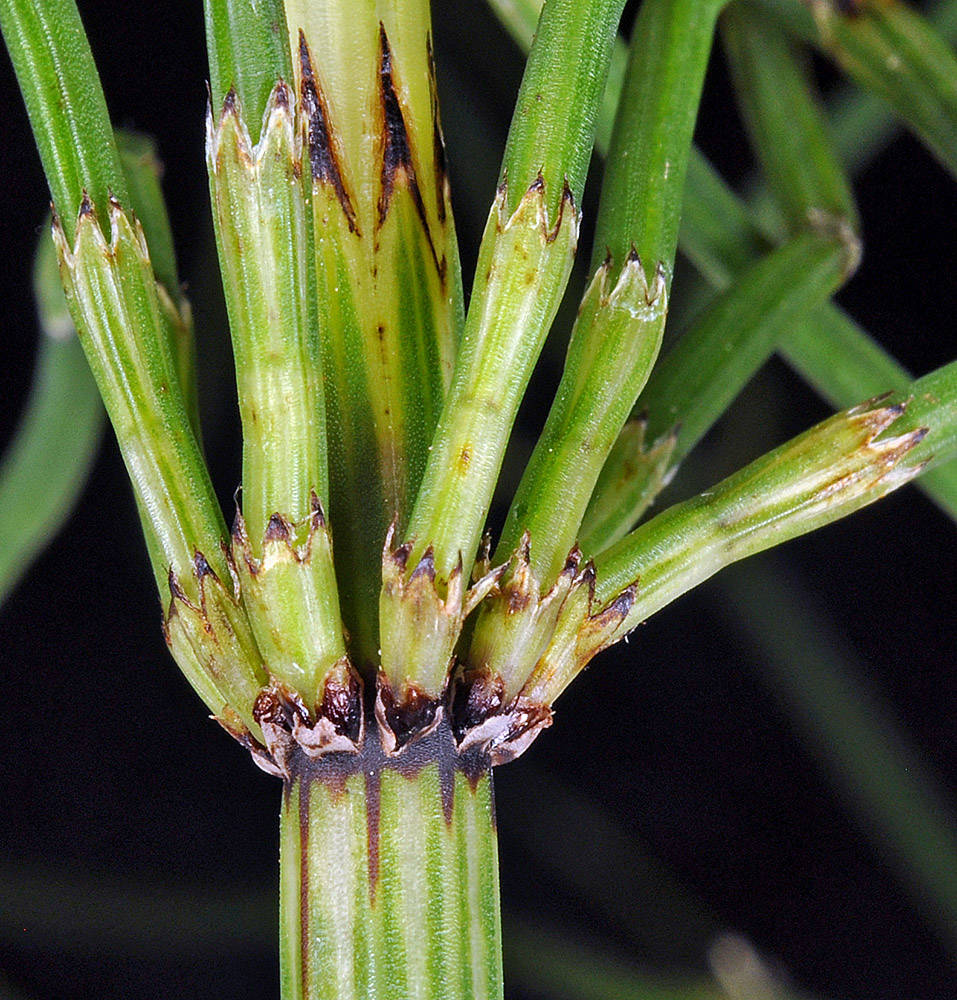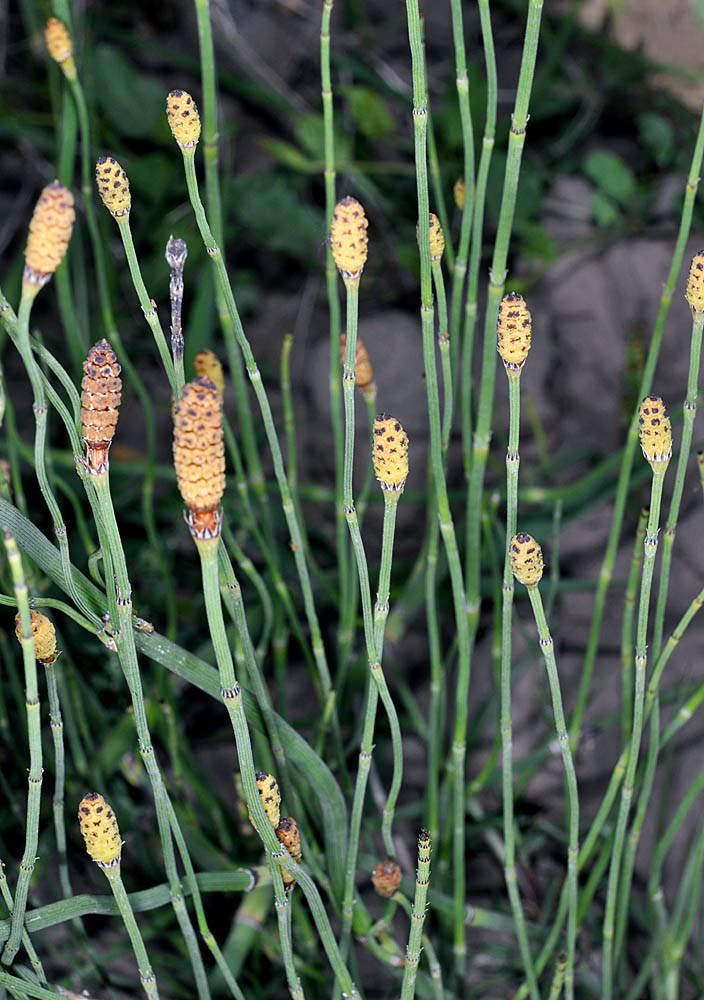Equisetum palustre
Equisetum laevigatum
marsh horsetail
smooth scouring rush
rectangular, 5–10 mm, green;
teeth 3–7 mm, persistent with a dark center and pale hyaline margins.
rectangular, 7–12 × 5–6 mm (uppermost sheath shorter); same color as stem and continuous with it; except for a terminal black band formed by the inturned persistent bases of the teeth;
teeth earlydeciduous, articulated and campanulate.
annual, monomorphic; up to 80 cm tall, deeply grooved, green;
ribs 5–10; central cavity less than 33% of the stem diameter.
annual, monomorphic; up to 120 cm tall, usually simple, occasionally with a few hollow ascending branches, green;
ribs 16–30, not furrowed; central cavity up to 75% of the stem diameter.
in whorls; from the mid-region of the stem, numerous to sparse (rarely absent);
ridges 4–6; first internode shorter than the sheath and not exserted.
(when present) with a dark base; first internode very short.
pedunculate.
shortly exserted from the terminal sheath or subsessile; blunt.
=216.
=216.
Equisetum palustre
Equisetum laevigatum
Swamps, marshes. 0–1200 m. Casc, WV. Northern North America; Asia, Europe. Native.
Damaged green stems of E. arvense can sometimes produce cones and resemble E. palustre. However, the latter differs from E. arvense in the size of its central cavity (greater than 33% stem diameter vs. less than 33% in E. arvense) and the first branch internode (shorter than sheath vs. longer than sheath in E. arvense).
Moist meadows, roadsides, and river banks. 50–2000 m. All ecoregions except Est. CA, ID, NV, WA; throughout North America. Native.
Duncan Thomas
Duncan Thomas
- Local floras:
BC,
CA,
OR,
WA
- Local Web sites:
CalFlora,
CalPhotos,
Flora NW,
PNW Herbaria
WildflowerSearch
iNaturalist (observations)
USDA Plants Database
- LBJ Wildflower Center
- SEINet
- Plants of the World Online
- Encyclopedia of Life
- Wikipedia
- Google Image Search
- Local floras:
BC,
CA,
OR,
WA
- Local Web sites:
CalFlora,
CalPhotos,
Flora NW,
PNW Herbaria
WildflowerSearch
iNaturalist (observations)
USDA Plants Database
- LBJ Wildflower Center
- SEINet
- Plants of the World Online
- Encyclopedia of Life
- Wikipedia
- Google Image Search





